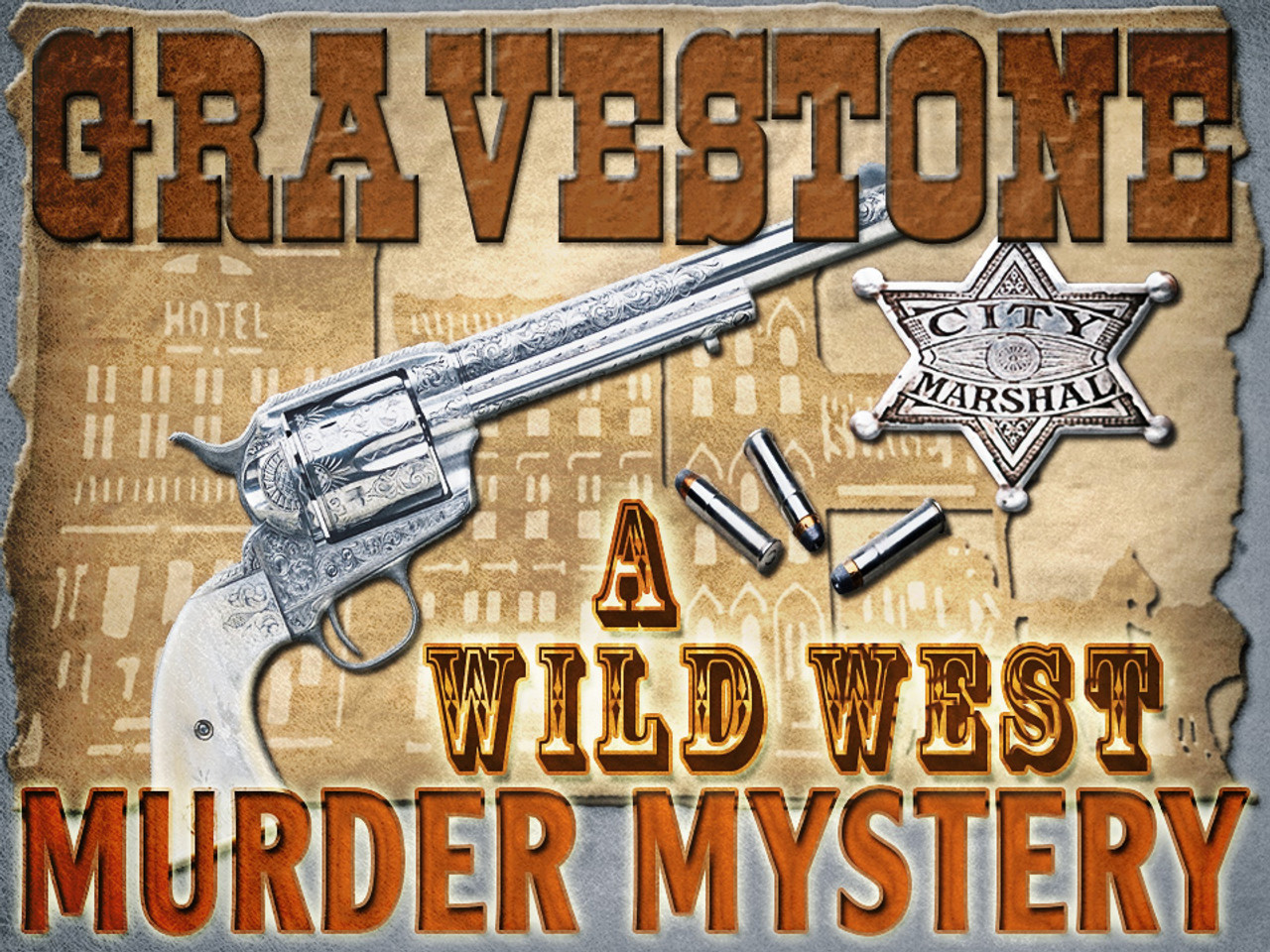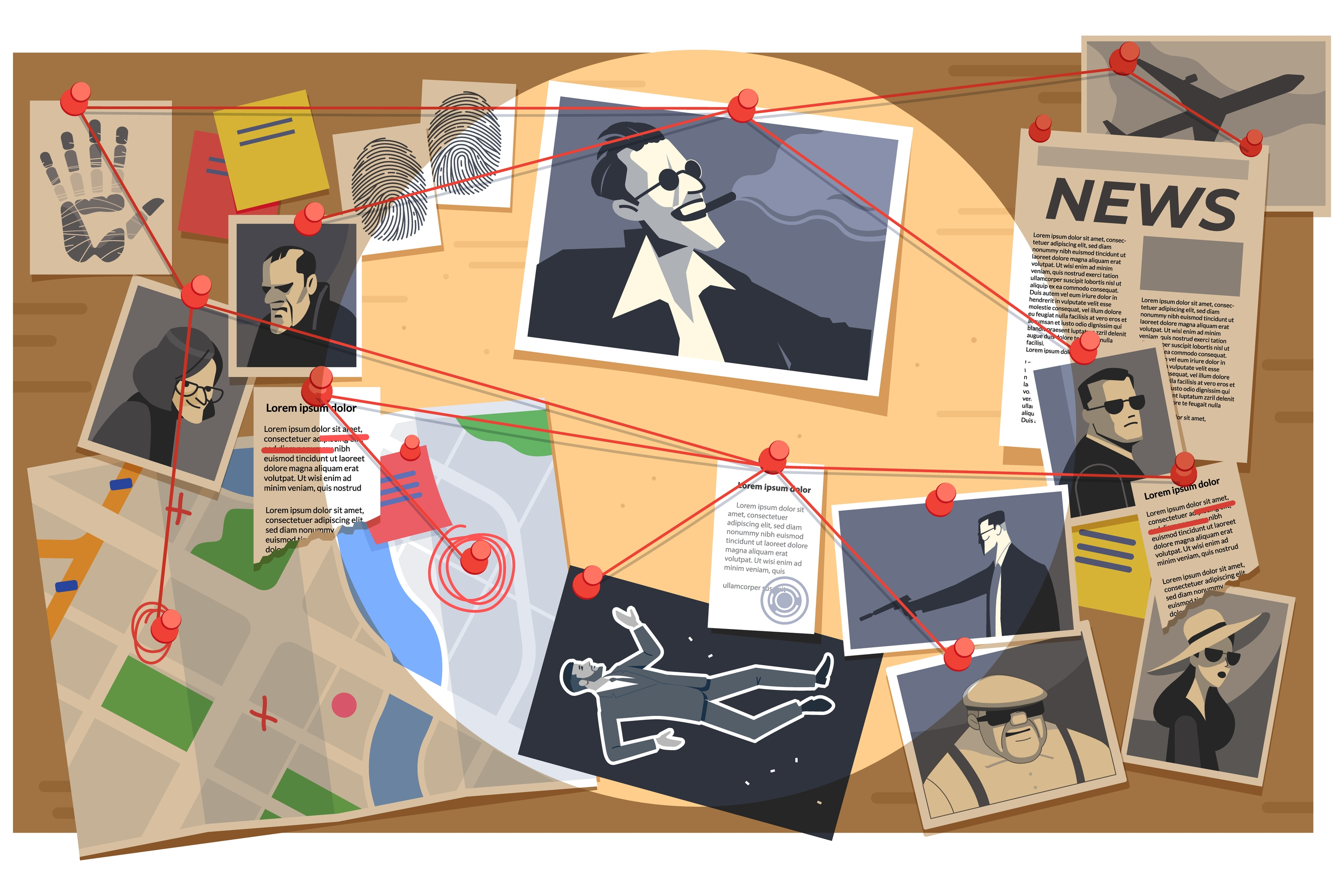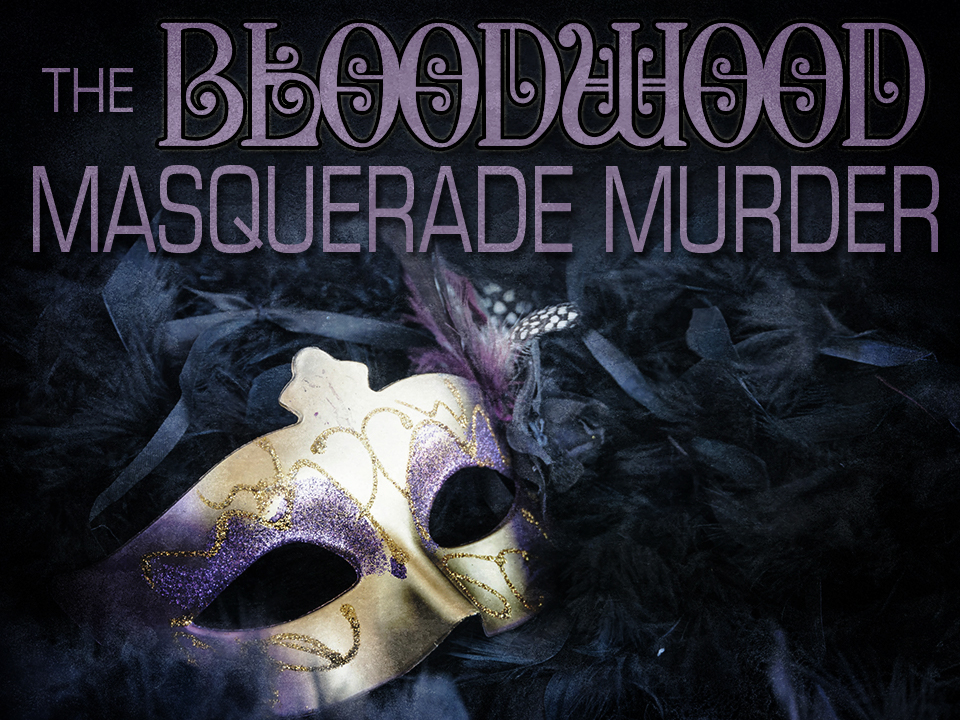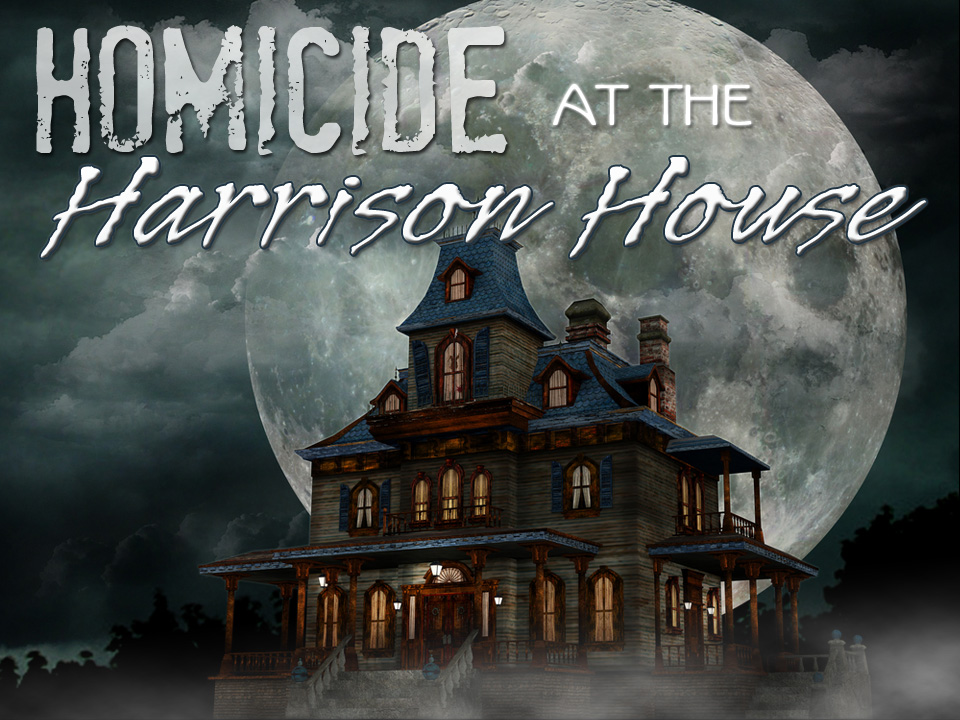Posted by Dr. Bon Blossman on Oct 25th 2015
How to Host a Murder Mystery Party
How to Host a Murder Mystery Party
Murder mystery parties are a guaranteed hit, but the key is to choose the right theme for your players and host the game at the perfect venue. There's no need to be elaborate to have a good time. My Mystery Party games are super easy to host.
MAKE A GUEST LIST:
The first step is to determine the ballpark number of how many players you want to have in the game. For example, most murder mystery party themes accommodate about 8-15 guests. The games range from four to over 300 players with expandable teams.
Decide if you will invite colleagues, family, friends, neighbors, or maybe a combination of these groups. The group type determines the optimal theme. Next, pin down the minimum and the maximum number of possible players.
Send a preliminary save-the-date note to the people you select to play the required character roles in determining if your proposed date will work. If not, choose another date until everyone agrees upon a date.

CHOOSE A THEME:
The next step is to choose a theme. First, decide on what type of decorations and costumes you prefer for this event. Then, choose a difficulty rating. New hosts should stick with moderate, level 4-6 difficulties, but seasoned players might be ready for the level 7-9 challenge games.
Next, consider your players' personalities and circumstances. For example, a party group of old friends should play something with more outrageous costumes, such as a decade theme like the eighties or Wild West - or even play a circus or a medieval mystery.



For a group of colleagues at a corporate event, stick to the traditional old manor theme with more subdued attire or maybe a masquerade ball.
CHOOSE A VENUE:

Host our games anywhere that your group can mingle and have conversations. Of course, your living room or backyard is perfect. Or, if your budget allows, rent a haunted mansion, a log cabin in the woods, or a bed & breakfast for the evening. Other options are:
- City park.
- Recreation center.
- High school gym.
- Restaurant's private dining room.
- Party bus.
- Pontoon boat.
- Hotel ballroom.
Whatever venue you choose, ensure there are restroom facilities and ample parking spaces (or valet service) for your guests.
ASSIGN CHARACTER ROLES:
You assign your players to their character roles using the host character list. Never allow your guests to choose their roles unless you are a huge fan of chaos and problem-solving. And, of course, you should also play a role. The host character lists are available on each game page under 'helpful links.' In the left-hand column, there are required and optional characters. All characters are suspects during gameplay, so only the host knows who was needed. Knowing this information isn't much of a spoiler, so don't worry – you can still play along. Read the character bios and suggested costumes to determine how to best match up your guest list. The required players are mandatory for the game, so assign your most dependable players to these roles. In addition, give yourself an optional part, as you will be a backup if one of your required players cancels at the last minute.
INVITATIONS:
Any invitation is acceptable to use. My Mystery Party has free downloadable invitations on each game page. Include who the party is hosted by, the date, time, party address, and an RSVP line. Give the character assignments - but only if you did the save-the-date and know your required players are locked in place.
The RSVP can be a formal card to mail back to you or a simple request for a text message to let you know if they are committed to attending. If you are not using our invitations, give the pre-game link for your game to your players so they can get the character information, watch the game trailer and get costume suggestions.
PLAN YOUR MENU:

Mystery parties are flexible, as you can serve appetizers the entire time or serve dinner. The games have rounds. Round one is the appetizer hour. Round two is when you serve the optional dinner. Round three is perfect for dessert.
Prepare the food yourself or have it catered - but either way, be sure it doesn't interfere with the flow of the mystery party. If you are serving dinner, the game instructions will tell you when it is best to pause the game and do so. If you are serving appetizers, be sure to offer ones that are friendly for mingling around while holding clue cards - so avoid sticky-sauced chicken wings.
DECORATIONS:

Always decorate the main party area to fit the theme, aiming to engage all senses. For example, with a Wild West party, find hay bales and old wooden signs to decorate the party room with old cowboy boots used as vases containing flowers as the table centerpieces. If it's an old mansion theme, use spider webs, dim lighting, and candelabras to set the mood just right.
There is no need to break the bank with party decor, as LED candles and a little confetti sprinkled on tables can be enough to set the perfect ambiance.
ROUND ONE:

Some games require a video to start each round and might have a case file or dossiers to review, or a group challenge to conquer. In all games, the players receive a round one clue card to mingle and discuss the information given during private conversations. The storyline builds beyond their character's bio, and motives unveil.
There are two sets of clues on the cards - ones to reveal to others and information the players can conceal. Private information tells the players how to react to others. Still, any secrets that need to come out to solve the mystery are revealed on other player's cards, the victim sign, the forensic reports, additional clues to find in the party space, or other methods, as our games vary. Therefore, round one progresses the mystery's plot, and the intrigue is high by the end.
ROUND TWO:

Various methods in our games handle the crime at hand. For example, non-murder games might announce the crime at the start of this round. With murder games, a non-player victim might be known upfront, announced in round one or at the beginning of this round. Most games will have another clue card for each player, but some have a case file to go through instead.
With victim player games, the murder happens in the middle of round two. Since this is our most popular game style, we will focus on this format.
The round two cards have a pre and post-murder section by design. The players first mingle and discuss the pre-murder clues. The victim has instructions on what to do, so no host intervention is needed. Some games might have a second player that finds the victim, and their cards will also give them detailed instructions.
The player becomes the victim by affixing a victim sign to themselves that details the crime scene. There are optional victim items, as well. This player remains in the game and investigates the crime as their character's ghost - angel - or undead - whatever you wish to call them. If you don't want a supernatural storyline, they can play as themselves, as the roleplay is over now.
After the victim's reveal, the investigation commences. Each player investigates the crime by discussing the post-murder clues. Again, the players engage in private conversations, chatting with every player at least once and using all information in the game. Depending upon the game, there might be a crime lab report, additional clues to find in the room, a group challenge to conquer, or other items to aid the investigation. Finally, each player will submit their guess of whodunit to the host.
SOLUTION ROUND THREE:
Each player will kick off the final solution round by accusing who they believe is the murderer. The host will pass out the solution cards, and the players will take turns presenting their part of the solution to the game. The murderer will eventually confess. With large-group games, some players will not read their cards in front of the group, but you'll give them time to mingle and discuss their character's solution after the confession.
During this time, the host can prepare the optional award ceremony. Since the game can declare one or many winners depending upon the host, give the winner(s) certificates, trophies, ribbons, etc., to top off the night.

Some games have an optional but fun alternative ending round to complete each character's story.




